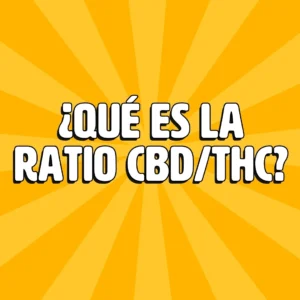CBD (cannabidiol) has become a popular compound thanks to its non-psychoactive properties and its potential to improve balance in the body. However, despite its generally well-tolerated profile, it is important to understand that CBD can cause certain side effects in some people. These effects are not necessarily dangerous, but it is essential to know them in order to use CBD in an informed and responsible way. In this article, we explore the main side effects of CBD, why they occur, how to minimize them, and what precautions to take. We must also know what legal uses we can give it in our country.
Main Side Effects of CBD
Fatigue and drowsiness
One of the most reported side effects of CBD is drowsiness. This may be because CBD interacts with receptors in the central nervous system, promoting a state of relaxation. While for some people this effect can be positive, such as those looking to improve their sleep, for others it could be inconvenient, especially if they plan to do activities that require concentration, such as driving or working. The intensity of this effect usually depends on the amount and method of use.
Dry mouth
Dry mouth, also known as “dry mouth,” is another side effect that some people experience when using CBD. This effect is associated with the temporary inhibition of salivary glands due to CBD’s interaction with the endocannabinoid system. Although it is not a dangerous effect, it can be uncomfortable. Staying hydrated and drinking water regularly is usually enough to counteract this.
Nausea and digestive problems
In certain people, CBD can cause stomach discomfort, such as nausea, diarrhea, or changes in digestive rhythm. This effect may be due to individual sensitivity to the compound. To minimize these discomforts, it is recommended to start with small amounts and gradually increase, allowing the body to adapt.
Drug interactions
CBD can interact with certain medications, especially those that are metabolized in the liver through the CYP450 enzyme. These interactions can alter the effectiveness of medications or increase the risk of side effects. For example, blood thinners, antiepileptics, and some antidepressants may be sensitive to these interactions. As such, it’s essential to consult with a doctor before starting CBD use if you’re under medical treatment.
Why Do CBD Side Effects Occur?
Dosage-Related Factors
The amount of CBD used plays a crucial role in the occurrence of side effects. While low doses are usually well tolerated, high doses can overload the body, increasing the likelihood of experiencing drowsiness, digestive discomfort, or changes in blood pressure. Adjusting the dose according to individual needs is key to reducing risks.
Product quality and purity
Not all CBD products are created equal. The quality of CBD depends on factors such as the extraction method, the presence of contaminants (such as pesticides or heavy metals), and the accuracy of the stated concentration. Low-quality products may contain residues or inaccurate levels of CBD, which could increase the possibility of adverse effects. Opting for products that are certified and tested by independent laboratories is essential to ensure their safety.
Metabolism and individual conditions
Everyone processes CBD differently depending on their metabolism, weight, age, and overall health. Factors such as an underlying medical condition, sensitivity to the compound, or the use of other supplements can influence how the body reacts to CBD. That’s why the experience with CBD can vary significantly from person to person.
How to avoid or minimize the side effects of CBD?
Choosing quality products
Selecting CBD oils or any other high-quality product is the first step to avoiding unnecessary side effects. Look for brands that offer independent lab testing, guarantee safe extraction methods, and use natural ingredients in their formulations. This not only ensures the purity of the product, but also the transparency of the brand.
Adjust the dose gradually
Starting with a low dose and gradually increasing it allows the body to adapt to CBD, reducing the likelihood of side effects. A typical starting dose may be 10-20 mg per day, depending on body weight and the condition to be addressed. Adjusting this amount progressively makes it easier to identify the optimal dose without exceeding the body’s limits.
Consult a doctor if you take medication
If you’re being treated with medications, especially those that affect the liver or central nervous system, it’s critical to consult with a healthcare professional before using CBD. A doctor can evaluate potential interactions and help you determine if CBD is right for you.
Important Precautions When Using CBD
Sensitive populations
Certain groups, such as pregnant women, people with liver disease, or children, should exercise extra caution with CBD. Although research on these groups is still limited, the lack of conclusive evidence on their safety makes it advisable to avoid using CBD without medical supervision in these cases.
Avoid combining with certain substances
Using CBD in conjunction with substances such as alcohol or specific medications may increase the risk of side effects or adverse interactions. If you decide to use CBD, avoid using it simultaneously with substances that affect the central nervous system or can be metabolized in a similar way.
Bibliography and digital sources
- Iffland, K., & Grotenhermen, F. (2017). “An Update on Safety and Side Effects of Cannabidiol: A Review of Clinical Data and Relevant Animal Studies.” Cannabis and Cannabinoid Research.
- Huestis, M. A., et al. (2019). “Cannabidiol Adverse Effects and Toxicity.” Current Neuropharmacology.
- Umpreecha C, Bhalang K, Charnvanich D, Luckanagul J. Efficacy and safety of topical 0.1% cannabidiol for managing recurrent aphthous ulcers: a randomized controlled trial. BMC Complement Med Ther 2023;23:57. https://pubmed.ncbi.nlm.nih.gov/36803360/
- Zheng T, BouSaba J, Taylor A, et al. A Randomized, Controlled Trial of Efficacy and Safety of Cannabidiol in Idiopathic and Diabetic Gastroparesis. Clin Gastroenterol Hepatol 2023;21:3405-3414. https://pubmed.ncbi.nlm.nih.gov/37482172/













